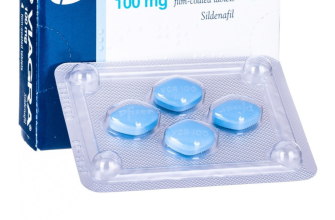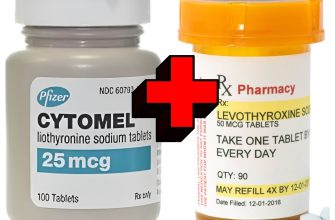No, Clomid doesn’t cure herpes. It’s a fertility medication, and herpes is a viral infection. These are separate medical concerns requiring distinct treatments.
However, understanding their potential interaction is crucial for anyone considering Clomid while managing herpes. Specifically, active herpes outbreaks can complicate fertility treatments. The inflammation associated with herpes can negatively impact egg or sperm quality and implantation success. This doesn’t mean Clomid is contraindicated in all cases, but it necessitates careful consideration.
Always inform your doctor about your herpes diagnosis before starting Clomid. They can assess your overall health, the severity and frequency of your outbreaks, and help determine the safest course of action. This may involve managing your herpes symptoms with antiviral medication to minimize the risk of complications during fertility treatments. Proper management of your herpes can significantly improve your chances of successful pregnancy.
Remember: This information is for general knowledge and does not constitute medical advice. Consult your physician or a reproductive endocrinologist for personalized guidance tailored to your specific situation.
- Clomid and Herpes: Understanding the Interactions
- Clomid’s Mechanism of Action and Potential Immune System Effects
- Immune System Modulation
- Clinical Considerations
- Herpes Simplex Virus (HSV) and its Recurrence Triggers
- Does Clomid Increase Herpes Outbreak Risk? Evidence and Research Gaps
- Managing Herpes During Clomid Treatment: Preventive Measures
- Medication Management
- Lifestyle Adjustments
- Outbreak Management
- Interactions Between Clomid and Antiviral Medications for Herpes
- Factors to Discuss with Your Doctor
- Alternative Approaches
- Consult Your Doctor: Individualized Risk Assessment and Treatment Strategies
Clomid and Herpes: Understanding the Interactions
Currently, there’s no direct interaction between Clomid (clomiphene citrate) and herpes simplex virus (HSV) documented in major medical literature. Clomid’s primary function is to stimulate ovulation, while herpes is a viral infection. However, some indirect considerations warrant attention.
- Immune System: Clomid might slightly suppress the immune system in some individuals. A weakened immune system could potentially lead to more frequent or severe herpes outbreaks. Regular monitoring of herpes symptoms is advisable if you’re taking Clomid and have a history of herpes.
- Medication Interactions: While Clomid itself doesn’t directly interact with antiviral herpes medications (like acyclovir or valacyclovir), always inform your doctor about all medications you’re taking to avoid potential unforeseen complications.
- Pregnancy and Herpes: Clomid is frequently used in fertility treatments. Herpes poses risks during pregnancy, potentially affecting the developing fetus. If you have herpes and are using Clomid to conceive, open communication with your doctor about appropriate preventative measures and management is crucial throughout your pregnancy.
Remember:
- This information does not constitute medical advice.
- Always consult your physician or a qualified healthcare professional before starting or stopping any medication, including Clomid, especially if you have herpes.
- They can assess your individual health status, medical history, and potential risks and benefits related to using Clomid alongside managing herpes.
Clomid’s Mechanism of Action and Potential Immune System Effects
Clomid (clomiphene citrate) primarily works by blocking estrogen receptors in the hypothalamus. This blockage triggers the pituitary gland to release more follicle-stimulating hormone (FSH) and luteinizing hormone (LH). Increased FSH stimulates follicle growth in the ovaries, while increased LH triggers ovulation. This is how Clomid promotes fertility.
Immune System Modulation
While Clomid’s primary action targets the reproductive system, some studies suggest potential effects on the immune system. These effects aren’t fully understood, but research indicates Clomid might influence cytokine production and potentially alter immune cell activity. The impact varies depending on factors such as dosage and individual patient response. More research is needed to clarify these interactions.
Clinical Considerations
Clinicians should consider a patient’s overall health, including immune status, when prescribing Clomid. Patients with autoimmune disorders or compromised immune systems may require close monitoring while taking Clomid. Open communication with your doctor about your medical history is paramount to managing potential risks and ensuring safe and effective treatment. Always discuss any concerns about your immune system before starting Clomid therapy.
Herpes Simplex Virus (HSV) and its Recurrence Triggers
Managing herpes outbreaks involves understanding what triggers them. Knowing these triggers helps you minimize recurrences.
- Stress: High stress levels frequently precede outbreaks. Stress management techniques like yoga, meditation, or even regular exercise can significantly help.
- Sun Exposure: UV radiation can reactivate the virus. Use sunscreen with an SPF of 30 or higher on affected areas, especially during peak sun hours.
- Hormonal Changes: Fluctuations in hormone levels, such as those experienced during menstruation or pregnancy, can trigger outbreaks. Maintaining a healthy lifestyle during these periods may help.
- Fever or Illness: Weakened immunity due to illness makes you more susceptible to outbreaks. Prioritize rest and hydration during times of sickness.
- Trauma or Injury: Physical trauma to the affected area can lead to reactivation. Avoid actions that may cause damage to the skin.
- Fatigue: Lack of sleep and exhaustion lower immunity. Aim for 7-8 hours of quality sleep each night.
Maintaining a healthy lifestyle is key. A balanced diet, regular exercise, and adequate sleep are vital components of managing HSV.
- Nutrition: Focus on a diet rich in fruits, vegetables, and whole grains. Limit processed foods and excessive sugar.
- Hydration: Drink plenty of water throughout the day to support overall health.
- Sleep Hygiene: Establish a regular sleep schedule and create a relaxing bedtime routine.
Note: This information is for general knowledge and does not substitute for professional medical advice. Consult your doctor or healthcare provider for personalized recommendations and treatment options.
Does Clomid Increase Herpes Outbreak Risk? Evidence and Research Gaps
Current research lacks definitive evidence directly linking Clomid use to increased herpes outbreaks. While some anecdotal reports exist, no large-scale studies have established a causal relationship. This absence of robust data makes it difficult to definitively answer the question.
The immune system’s response to Clomid varies. Some women experience no significant immune changes, while others might have minor alterations. Herpes outbreaks are often triggered by factors like stress, illness, or hormonal fluctuations. Since Clomid influences hormones, it’s theoretically possible for it to indirectly impact herpes recurrence. However, this remains purely speculative without dedicated research.
Further research is needed to explore a potential link. Studies should compare herpes outbreak frequency in women using Clomid versus those not using the drug, controlling for other relevant factors, like general health and stress levels. These studies should involve large, diverse populations to provide statistically significant results.
Until more evidence emerges, women using Clomid should monitor for herpes outbreaks as they normally would. If outbreaks become more frequent or severe, consulting a physician is advised. They can assess individual risk factors and provide appropriate advice regarding herpes management.
Managing Herpes During Clomid Treatment: Preventive Measures
Maintain meticulous hygiene. Wash your hands thoroughly and frequently, especially before touching your genitals or face. Regularly clean any surfaces that might harbor the virus.
Avoid contact with others during outbreaks. This includes sexual contact. Using condoms can reduce transmission risk but doesn’t eliminate it entirely.
Medication Management
Strictly adhere to your prescribed antiviral medication regimen. Consistent use is key to suppressing outbreaks and minimizing viral shedding.
Communicate openly with your doctor. Report any changes in your herpes symptoms or any concerns regarding medication side effects. They can adjust your treatment plan as needed.
Lifestyle Adjustments
Prioritize stress reduction. Stress can trigger herpes outbreaks. Incorporate stress-management techniques such as exercise, yoga, or meditation into your daily routine.
Maintain a healthy immune system. A strong immune system helps your body fight off the virus. Focus on a balanced diet, adequate sleep, and regular exercise.
| Strategy | Action |
|---|---|
| Hygiene | Frequent handwashing, cleaning surfaces. |
| Medication | Consistent antiviral use, open doctor communication. |
| Lifestyle | Stress reduction, healthy immune system. |
Outbreak Management
Identify and avoid outbreak triggers. Common triggers include sun exposure, fatigue, and illness. Knowing your triggers allows you to take preventative steps.
Use cold compresses. Applying cold compresses to sores can help reduce pain and inflammation.
Interactions Between Clomid and Antiviral Medications for Herpes
Consult your doctor before combining Clomid with antiviral herpes medications. While no direct, significant interactions are widely documented, individual responses can vary. Your physician can assess your specific health status and medication history to determine potential risks or benefits of concurrent use. This is particularly crucial if you’re on long-term antiviral therapy.
Factors to Discuss with Your Doctor
Specific antiviral medications (like acyclovir, valacyclovir, or famciclovir) and their dosages affect the assessment. Your doctor will consider the severity of your herpes, your overall health, and potential side effects from either medication alone or in combination. They might suggest monitoring for changes in your symptoms or blood work.
Alternative Approaches
If concerns arise about potential interactions, alternative treatment plans may be discussed. Your physician can help you weigh the pros and cons of different treatment strategies for both infertility and herpes management.
Consult Your Doctor: Individualized Risk Assessment and Treatment Strategies
Schedule a consultation to discuss your specific situation. Your doctor will assess your medical history, including any prior herpes outbreaks and the severity of your symptoms. They’ll also consider your overall health and any other medications you’re taking.
Clomid can affect the immune system, potentially influencing herpes outbreaks. Your doctor will help determine if this is a concern for you. They’ll weigh the potential benefits of Clomid against any increased herpes risk based on your individual profile.
If you experience a herpes outbreak while taking Clomid, report it immediately. Your doctor may adjust your Clomid dosage or prescribe antiviral medication to manage the outbreak. This might involve acyclovir, valacyclovir, or famciclovir, depending on your circumstances.
Regular check-ups are vital for monitoring your health while on Clomid. This allows for prompt identification and treatment of any complications, including herpes outbreaks. Your doctor will provide tailored advice based on your progress.
Open communication with your doctor is paramount. Don’t hesitate to ask questions about potential risks and management strategies. Your healthcare provider is your best resource for navigating this.








